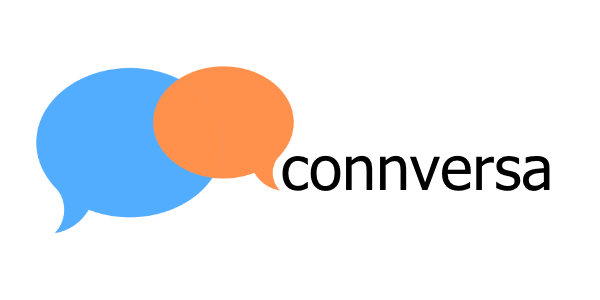I normally don’t write about myself in this blog, but this once I wanted to tell the story of how and why I started Connversa.
Back in 2014, I started a job as a copywriter at a large medical device company.
It was my first corporate job, and really the first traditional “office job” I’d ever had. (I’d been a freelance writer and audio producer for about 10 years, and before that spent eight years getting a PhD in English Literature and Jewish Studies at Indiana University.)
I knew very little about the corporate world and even less about how a large business (or a small business, for that matter) actually works.
Before long, I came to understand that one of the biggest challenges the company faced was enabling its sales teams to outsell the competition. And me and my marketing colleagues, of course, were tasked with creating the content that was supposed to give our sales people an advantage: mostly brochures, magazine ads, and product catalogs.
But the sales teams were asking for something different: a podcast featuring sales people sharing tips for closing more deals. It made sense. Sales people spent lots of time driving to and from accounts, and so they had many hours every week available for listening to each other talking about developing relationships with physicians, overcoming objections, and everything else that went into growing their business. Plus, they rarely got to see each other in person and didn’t have much opportunity to learn from each other.
I was a big podcast fan and a devoted consumer, and I had some experience producing audio segments for radio shows. But I had never thought about how podcasting could be used as a business communication tool. It seemed like the proverbial no brainer!
And so, I raised my hand and volunteered to run the project.
Long story short, the podcast never happened. For a variety of reasons I still don’t completely understand, the company’s leadership never really got behind the podcast, and after a handful of trial episodes it died on the vine.
I was sorely disappointed. But I was also determined to bring the idea to life, one way or another. If my employer didn’t see the value, I figured that other companies would, or at least that I could persuade marketing leaders at other companies that podcasting made a lot of sense as a sales enablement channel.
And so, on the side, I began reaching out to people on LinkedIn to share my vision. And it worked! Many of the sales enablement and marketing people I was talking to were in fact intrigued by podcasting, not only as an internal communication tool but also as a marketing channel. Remember, this was 2014, the year that podcasting really exploded on the scene with Serial, a true crime podcast created by producers associated with This American Life, that became an international phenomenon. Podcasting was on the rise, and marketers were paying attention.
Fast-forward to 2019. Over the past five years I’d built up a roster of clients, and the time was fast approaching when I would have to make a decision: either stay employed at my day job and do podcasting as a side hustle … Or take a deep breath and leave the dull but safe and steady world of corporate employment for the more alluring and unpredictable world of entrepreneurship.
In the end, it wasn’t really much of a choice. Corporate life just wasn’t for me, and I just had to see how far I could take this podcasting thing. Maybe I was crazy for walking away from a steady paycheck and benefits. But something was pushing me to take the leap. And so I did.
Just more than three years later, I have no regrets. Running and growing a business has turned out to be the most challenging but also the most rewarding work I’ve ever done. I’ve built a team of talented producers, worked with some amazing clients, and learned an incredible amount about business, about marketing, and about myself.
One thing I’ve learned above all else is that growing a business isn’t really about money. It’s about value. If we really believe in what we’re offering, find effective ways to communicate the value of what we do, and follow up by doing our work to the very best of our abilities, good things happen, and the money follows.
At the end of the day, I can honestly say that I love what I do. Not because it’s always enjoyable or fun. In fact, the day-to-day of running Connversa is often a grind. The hours are long. Most of what we make goes right back into the business. Because my team is remote, things can get a little lonely and isolating.
But every day presents a new challenge, and every small victory is sweet. I wouldn’t trade it for anything.
